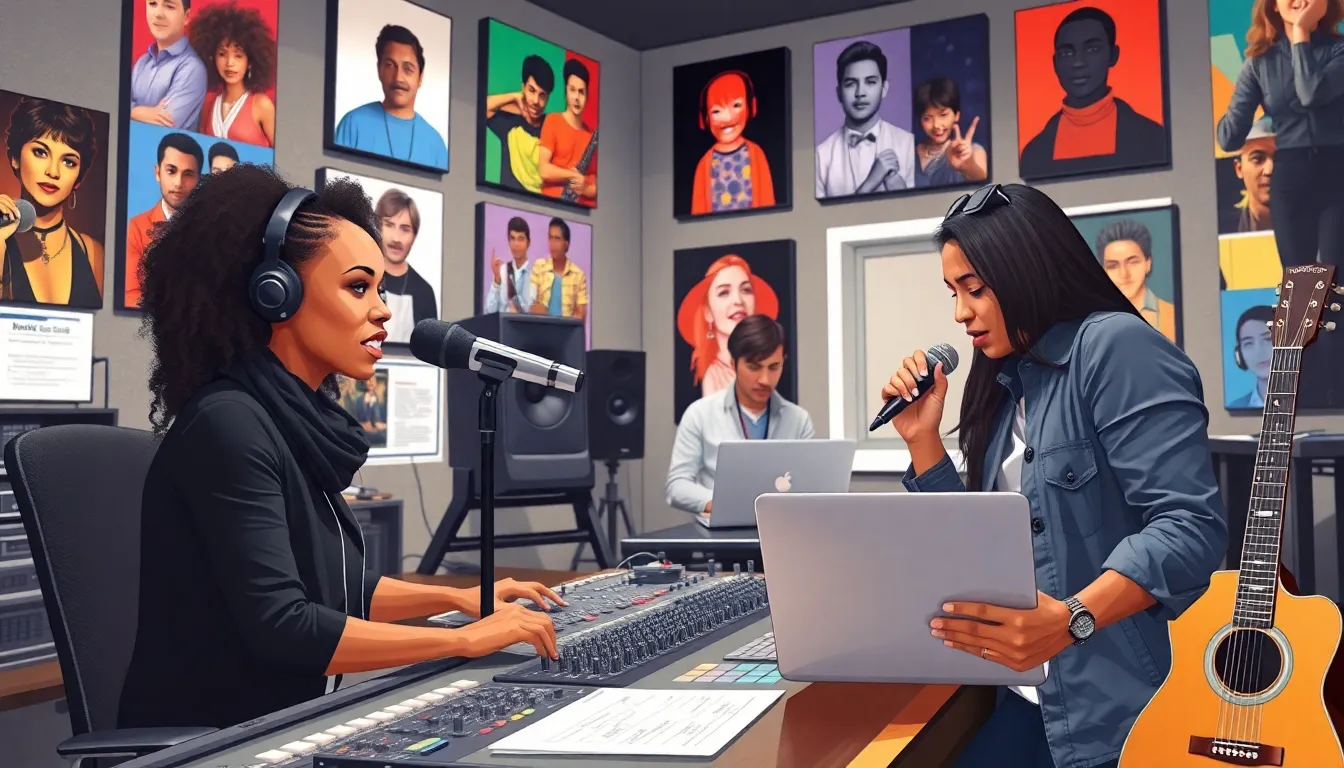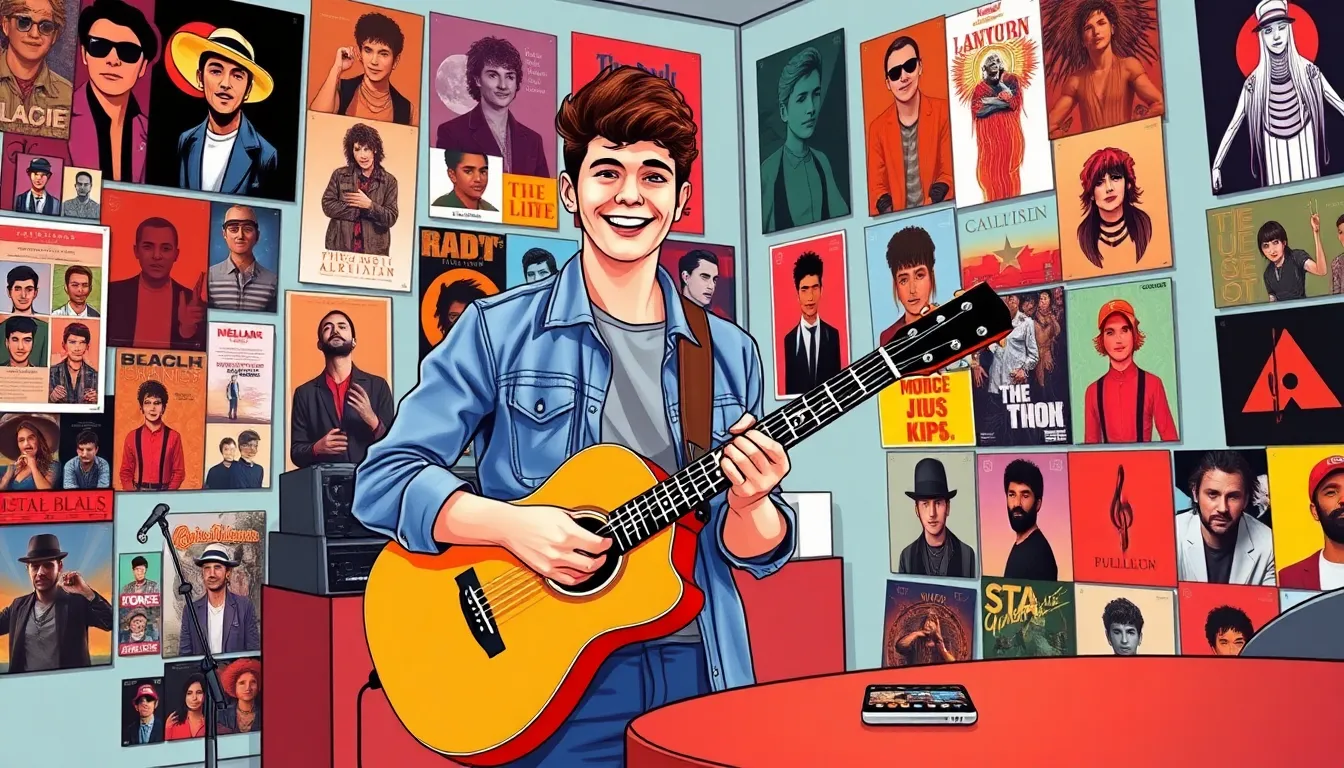
Who Runs the Music Industry? Unlocking the Secrets Behind Your Favorite Hits
Ever wondered who really pulls the strings in the music industry? It’s not just the artists belting out those catchy tunes. Behind the scenes, a colorful cast of executives, producers, and influencers orchestrates the whole show, and they might just be the unsung heroes—or villains—of your favorite hits.
Who Runs the Music Industry
The music industry involves numerous interconnected roles and influences beyond artists. Various entities collaborate to shape trends, distribute music, and determine commercial success.
Major Players In Music
Artists, managers, and producers form the core of the music ecosystem. Managers handle business negotiations and artist promotion. Producers oversee sound creation and track production. Additionally, agents book performances and ensure exposure. Artists rely on publicists for media visibility and brand building. Influencers and digital platforms also significantly affect music discovery and consumption.
The Role Of Record Labels
Record labels are essential in the music industry. They provide financial backing for recording and marketing. Labels also handle distribution to ensure music reaches listeners. A&R teams scout and sign new talent while building catalogs of successful artists. Labels often negotiate licensing deals and royalties, impacting an artist’s revenue stream. Ultimately, record labels function as gatekeepers, determining the promotional strategies that elevate music visibility.
Power Dynamics In The Music Industry

The music industry thrives on a complex network of influence and power, with multiple forces at play.
Influence Of Streaming Services
Streaming services dominate music consumption today. These platforms, such as Spotify and Apple Music, decide which songs receive heavy exposure. Algorithms prioritize tracks based on user data, pushing certain artists into the spotlight. Chart performance often relies on streams, which can significantly impact an artist’s career. Record labels work closely with these services, negotiating promotional deals to ensure their artists gain visibility. Additionally, curated playlists facilitate music discovery, allowing new and established artists to reach wider audiences quickly.
Impact Of Social Media On Artists
Social media dramatically alters artists’ careers by enabling direct interaction with fans. Platforms like Instagram and TikTok allow musicians to share their personal stories and connect with listeners. Viral trends on these networks can lead to rapid song popularity, significantly impacting charts and radio play. Industry professionals monitor social media engagement, using analytics to inform marketing strategies. Artists leverage content creation to enhance visibility, while brand partnerships on these platforms can generate additional revenue. The influence of social media extends beyond traditional promotion, reshaping how music is marketed and consumed.
Industry Gatekeepers
Industry gatekeepers include a wide range of professionals who influence music’s outreach and success. These key figures work behind the scenes, shaping the paths of numerous artists.
The Role Of Promoters And Managers
Promoters play a vital role in organizing events and securing venues for performances. They connect artists with audiences while managing logistics and financial arrangements. Managers, on the other hand, handle business negotiations and guide artists’ careers. They create strategic plans for growth and visibility, ensuring artists meet their professional goals. Coordination between promoters and managers leads to successful tours and enhanced fan engagement. Both groups contribute significantly to an artist’s exposure and overall career trajectory.
The Significance Of Music Publishers
Music publishers possess crucial influence over the rights and revenues associated with songs. They manage copyright claims and collect royalties, ensuring artists receive financial compensation for their work. With a focus on licensing, publishers enable songs to reach various media formats, increasing visibility and revenue opportunities. In addition, they provide creative support, often connecting songwriters with potential collaborators. By curating a catalog of songs and monitoring trends, music publishers help shape the industry landscape, ensuring that artists benefit from their creative outputs.
Artist Empowerment
Artist empowerment signifies a shift in how musicians control their careers in the evolving music industry. With tools and resources at their disposal, artists can directly influence their success and audience engagement.
Independent Artists And Self-Promotion
Independent artists increasingly rely on self-promotion to reach listeners. Access to social media platforms like Instagram and TikTok enables them to share their music and personal stories directly with fans. Through engaging content and authentic interactions, musicians foster loyal fan bases. They manage their marketing strategies based on analytics, ensuring targeted outreach. By leveraging various online channels, independent artists bypass traditional gatekeepers, gaining more control over their narratives. Success stories abound, demonstrating the effectiveness of self-promotion in building a career.
The Rise Of DIY Music Platforms
DIY music platforms revolutionize the way artists distribute their work. Services like Bandcamp and SoundCloud provide musicians the ability to upload their tracks and reach global audiences without the need for a record label. These platforms offer flexible pricing options, allowing artists to set their terms. Additionally, they facilitate direct fan engagement through comments and feedback. By encouraging creativity and experimentation, DIY platforms empower musicians to explore their sound without constraints. Ultimately, this shift fosters a diverse musical landscape where opportunities for exposure and connection thrive.
Conclusion
The music industry is a complex ecosystem where various players collaborate to shape the soundscape. Artists may be the faces of the industry but it’s the executives, producers, and digital platforms that wield significant influence behind the scenes. As technology evolves and social media continues to reshape interactions, the balance of power is shifting.
Independent artists are now empowered to take control of their careers, leveraging tools that allow them to connect directly with fans. This democratization of music distribution fosters a rich diversity of sounds and opportunities. Understanding these dynamics is essential for anyone looking to navigate or appreciate the intricacies of today’s music landscape.